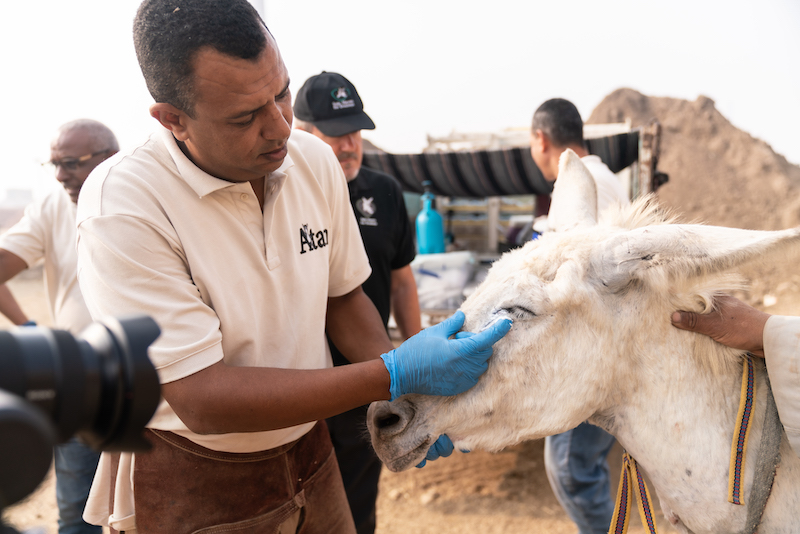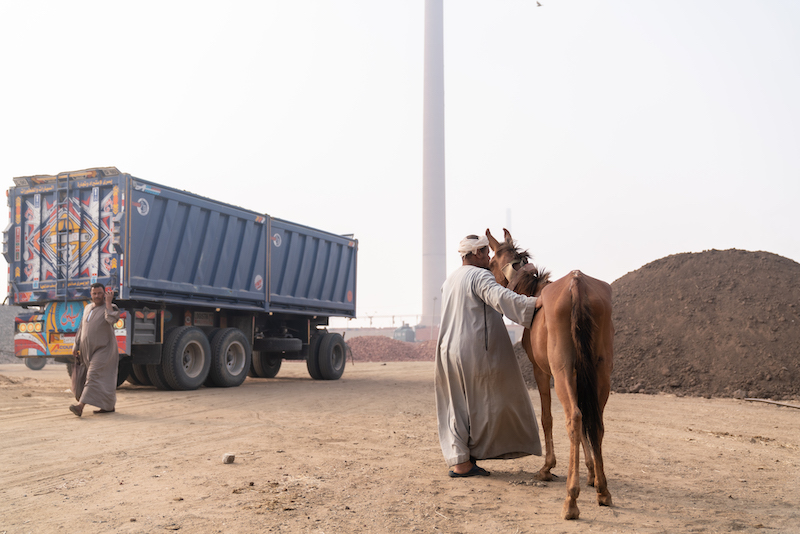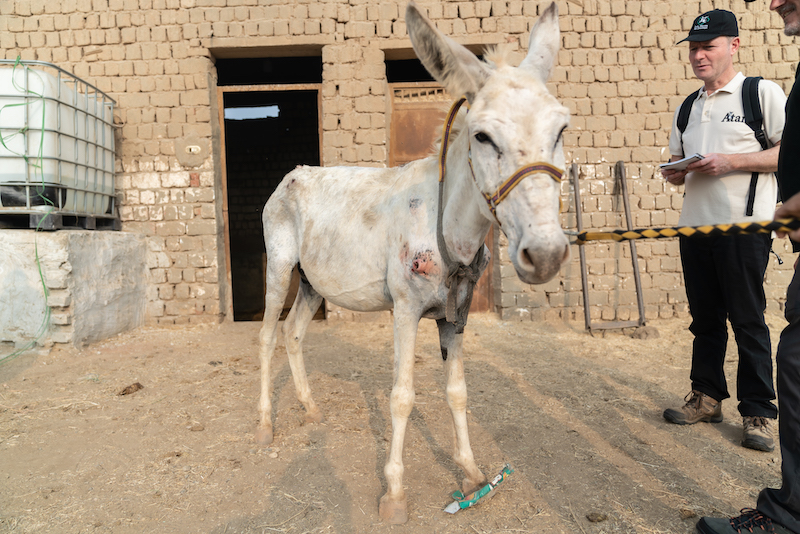Our Egypt project FAQs
Frequently Asked Questions
Why is this help so urgently needed?
In the brick kilns of El Saf, donkeys are suffering unimaginable pain due to harness and saddle wounds, beatings, teeth and hoof issues.
How will the project benefit the animals?
With your support, the veterinary team can deal with immediate, fixable problems, often bringing instant relief to animals that have been in pain for many months. But we can also bring long-term benefits through training, thereby avoiding further injuries and hoof issues.
How does this project differ from the work that the charity is doing in Israel/West Bank?
It’s not dramatically different to the work carried out by the mobile veterinary clinic in the West Bank. There, we treat donkeys who work in farming, construction and transport, while in Egypt the animals are exclusively involved in the brick kilns.
Does this mean you’re no longer working in Israel and the West Bank?
Rest assured, we remain committed to our work in Israel, where our Sanctuary is home to over 200 donkeys – many of whom have experienced abuse and neglect – and in the West Bank, where we now have three mobile vet teams working across the region. With your help we can now extend our work again – this time into Egypt, where donkeys are in dire need of help.
What animal cruelty laws are there in place in Egypt?
There are laws in place in Egypt, but they’re not necessarily enforced because of the cost and logistical challenge, and because there are bigger priorities in a developing country than donkeys. It should be noted that in the UK, it often falls to charities and welfare organisations to enforce our laws.
Why are donkeys used and not horses?
Donkeys have a temperament better suited to the work than horses, which are likely to bolt, bite or kick. Donkeys are also sadly cheaper and more expendable than horses, which are valued more highly in the Arab world.
Why are donkeys used for this work and not tractors?
Tractors are used to transport large quantities of bricks to the drying area, but donkeys and carts are better suited to transporting bricks in to the kiln because access points are quite narrow.
How many kilns are there in Egypt and why has the charity chosen this area specifically?
There are around 1,000 brick kilns in Egypt, and about 600 in the El Saf area. While there are other charities operating in the area, there are none in this specific cluster of 120 to 180 brick kilns.
What other things can the charity do to improve the welfare of the animals in the kilns?
In addition to treatment and training, we also plan to set up a farrier project. With more farriers on the ground, we can easily correct the deformities and discomfort that comes as a result of transporting heavy loads.
What will donors be funding?
Donors are funding a mobile veterinary team who can work at the brick kilns six days a week, along with funding the necessary medicine and equipment.
What are the longer term aims for the project?
We want to establish a long-term presence in the brick kilns, so we’re on hand to treat illnesses, wounds, and hoof and teeth issues. We aim to cover as many kilns as possible – and hope to introduce a new team very soon.
£20 could provide a donkey in the brick kilns with vital veterinary care.
The donkeys at the brick kilns are suffering but with your support we can ease their pain and give them a better future.
If we are lucky enough to raise more money than we need to support our Egypt project we will use the funds to support other working donkeys in the West Bank and Gaza, as well as our Sanctuary in Israel and rescue centre in Arrana, the West Bank.



